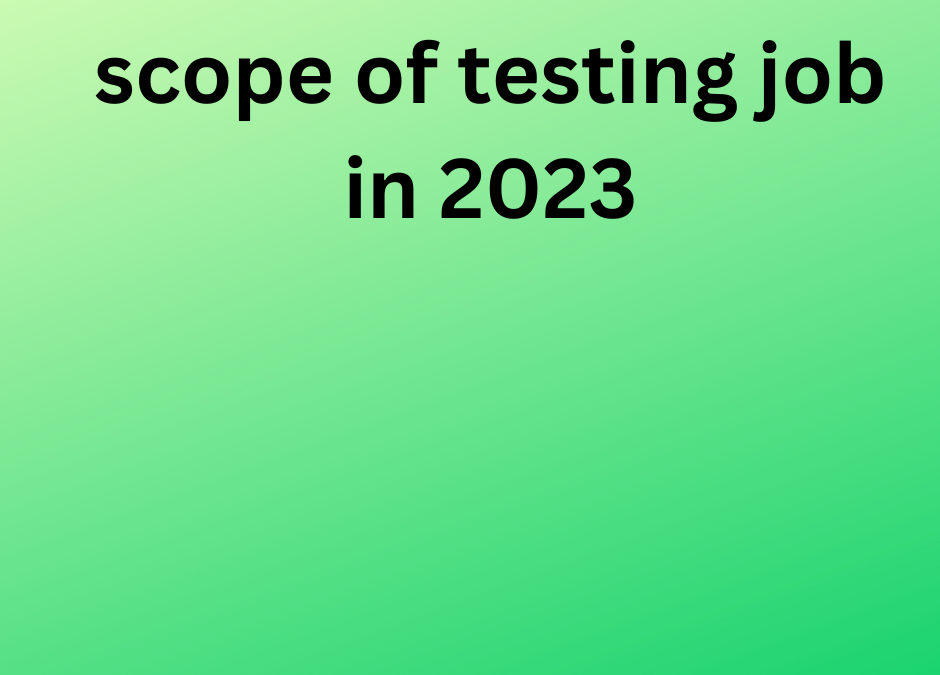The scope of a testing job in 2023 is likely to continue evolving as technology advances and the software development landscape changes. Here are some key aspects to consider regarding the scope of testing jobs in 2023:
- Increased Automation: Automation in testing has been on the rise for several years, and this trend is likely to continue in 2023. Test automation tools and frameworks will become even more critical in ensuring efficient and thorough testing processes.
- Shift Left Testing: Organizations are increasingly adopting a “shift left” approach to testing, which means testing begins earlier in the software development lifecycle. Testers may need to collaborate more closely with developers to identify and address issues early in the development process.
- Continuous Integration/Continuous Deployment (CI/CD): With the widespread adoption of CI/CD pipelines, testing will need to integrate seamlessly into these workflows. Testers will need to ensure that tests are automated and can be executed as part of these pipelines.
- Performance Testing: As applications become more complex and rely on various technologies, performance testing will remain crucial. Testers will need to assess the performance, scalability, and responsiveness of applications, especially in cloud-based and distributed environments.
- Security Testing: With the growing number of cyber threats, security testing will be a significant aspect of testing jobs in 2023. Testers will need to identify and mitigate security vulnerabilities in applications.
we are providining Selenium training in coimbatore Selenium is a popular web automation tool that is used to test web applications. It helps to detect errors and automate repetitive tasks.
- AI and Machine Learning Testing: As AI and machine learning become integral to many applications, testers may need to focus on testing the algorithms, data sets, and model outputs for accuracy and reliability.
- User Experience (UX) Testing: Ensuring a positive user experience is essential. Testers may need to focus on usability, accessibility, and user interface testing to guarantee that applications are user-friendly.
- IoT and Mobile Testing: With the proliferation of IoT devices and mobile applications, testers may need to specialize in testing these platforms, including device compatibility and connectivity testing.
- Regulatory Compliance: Depending on the industry, testers may need to ensure that applications comply with specific regulations and standards (e.g., GDPR, HIPAA, ISO 27001).
- Test Data Management: Managing test data effectively, especially in compliance with data privacy regulations, will be a critical aspect of testing jobs in 2023.
- Remote and Distributed Testing Teams: Remote work and distributed teams have become more common. Testers may need to adapt to remote collaboration tools and methodologies.
- Soft Skills: Effective communication and collaboration skills will continue to be important. Testers will need to work closely with developers, product managers, and other stakeholders to ensure high-quality software.
- Continuous Learning: The field of software testing is continually evolving. Testers will need to stay updated with the latest tools, techniques, and best practices through continuous learning and professional development.
- Ethical Testing: With growing concerns about data privacy and ethics in technology, testers may need to consider the ethical implications of the software they test.

